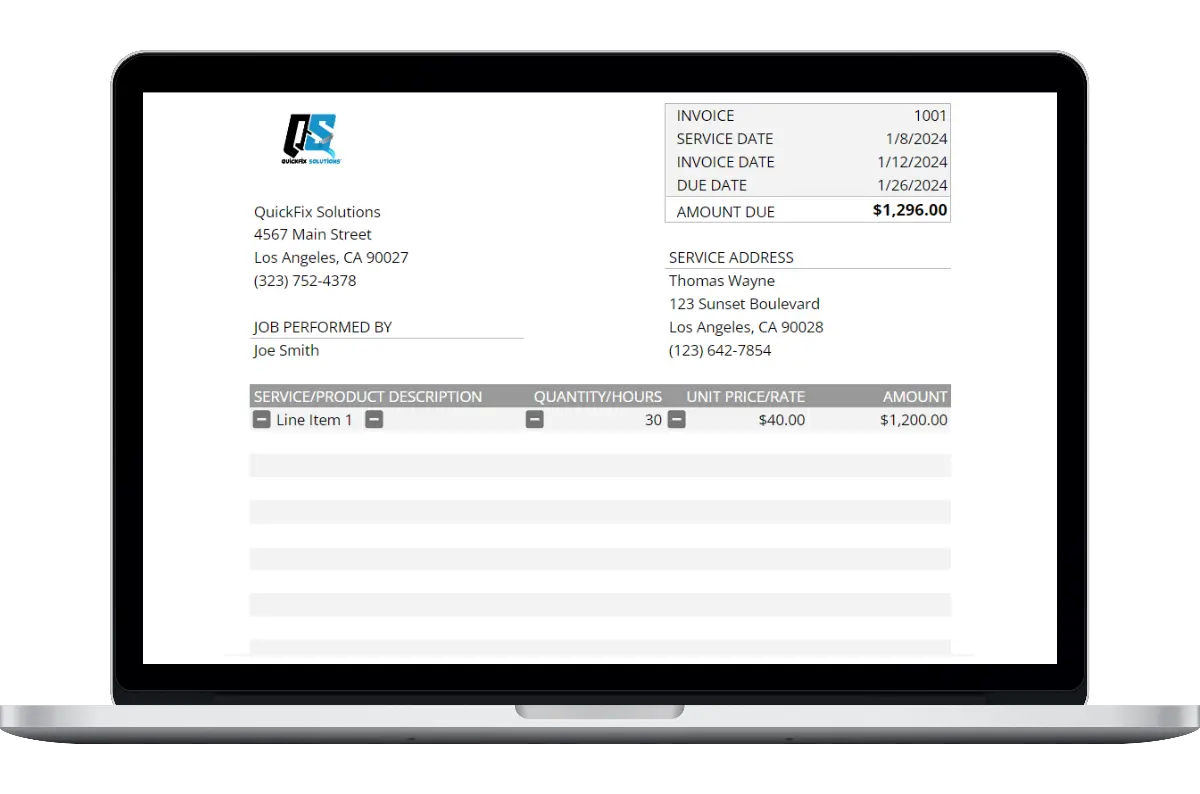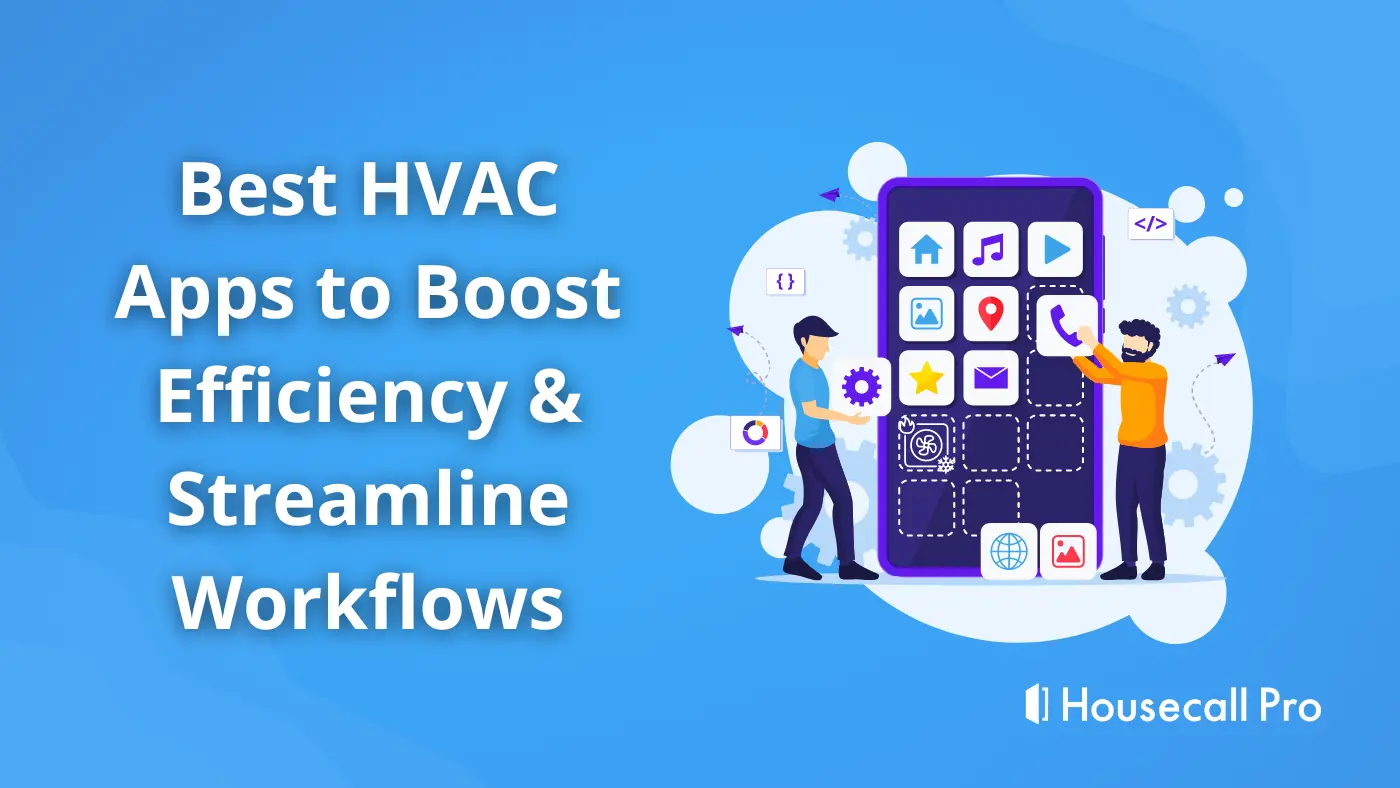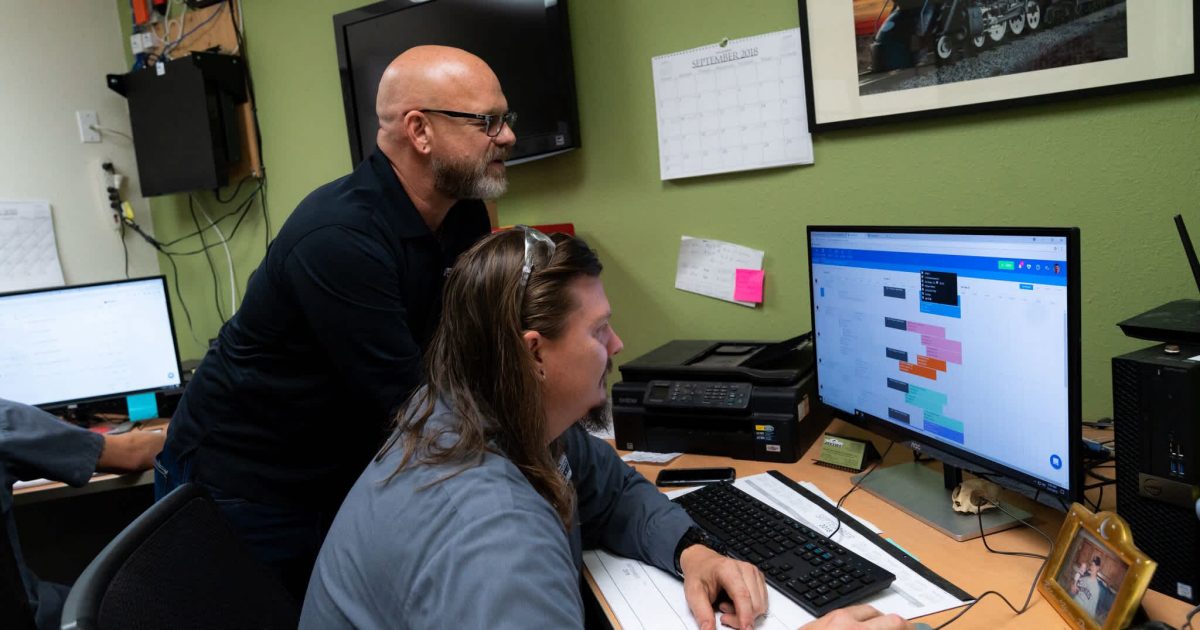
Plumbing is a system of pipes and fixtures installed in buildings for the distribution of water and removal of waste. Plumbing dates all the way back to 2500 BCE and is a credited invention of ancient Egypt. The first indoor plumbing was traced back to the early 1800s, though most homes would not have flush-toilets until the mid-to-late 1940s.
Plumbing has come a long way since then and is found in the vast majority of American homes. Plumbing as a trade has low unemployment numbers and a high job growth rate. Most plumbing professionals in the U.S. can expect steady employment and above-average wages. Learn more about the different types of plumbers – and if you already are in the industry, find out how Housecall Pro’s plumbing software can help your business grow.
What is a Plumber?
A plumber is a professional tradesman that specializes in the installation, repair and maintenance of of plumbing systems, including:
- Potable water
- Hot water production
- Sewage systems
- Drainage systems
Plumbers must be able to troubleshoot and repair plumbing systems and fixtures. They must be knowledgeable of local, state and federal building codes and be able to read blueprints for new construction projects.
The plumbing trade generally offers good pay and a good job outlook with the potential for upward growth. Many plumbers choose to branch out on their own as independent contractors and have the luxury of setting their own hours, prices and job availability.
A career in plumbing doesn’t require a college degree but rather a trade school education or on-the-job training.
For those who enjoy hands-on work, it can be a great career. However, it should be noted that work as a plumber can be physically demanding with long hours. Most plumbers work independently on jobs. While this can be a perk for some, it can be a negative for extroverted persons who enjoy working with a team.
The Different Types of Plumbers
Believe it or not, there’s more to the industry than just a one-size-fits all plumber. There’s a plumber for pretty much every specialty you can think of. Learn more about the different types of plumbers below.
1. Residential Plumbers
Residential plumbers service private homes. These are the plumbers you’ll call to your house to work on your equipment. Residential plumbers handle all aspects of home plumbing, including:
- New installation of water pipes and waste pipes
- Drain cleaning
- Leaks
- Toilet installation and repair
- Sink installations
- Shower/bathtub installations
- Fixture repair and replacements
- Water heater repair and service
- Water treatment options
- Water softeners
- Sump pumps
- Garbage disposal installation and repair
- Water pressure problems
- Gas line installations
2. Commercial Plumbers
Commercial plumbers work on large-scale plumbing systems that service apartment buildings and businesses. Commercial plumbing systems have to withstand more use than residential plumbing systems and are configured in a way to efficiently distribute large amounts of water and remove waste.
Many commercial plumbers specialize in one area of the trade. Unlike residential plumbing jobs, commercial plumbing installation often requires a team to complete projects on time. Some commercial plumbers specialize in installation while others may specialize in waste removal or system maintenance.
What’s The Difference Between Residential Plumbing and Commercial Plumbing?
Residential plumbers service plumbing systems in homes (residences) and commercial plumbers service plumbing systems in commercial spaces (businesses).
Residential plumbers are the ones that come out to your home to clear your drains or replace your leaky faucet. They specialize in the workings of single-family homes.
Commercial plumbers service areas like offices, apartment buildings, schools, stores, and hospitals. The plumbing equipment in commercial spaces needs to be able to handle more usage and will be different from the equipment used in residential homes. Because of these differences, residential plumbers don’t typically work on commercial plumbing systems and vice versa.
Plumbing Job Specialization
Both commercial and residential plumbers can specialize in one area of the trade. While this is more common with commercial plumbers, there is a high demand for residential plumbers in much of the U.S., allowing workers to choose a specialty to focus on.
3. Service and Repair Plumbers
Service and Repair Plumbers specialize in troubleshooting and maintenance of plumbing systems. These are the plumbers that are called to the job when there is a problem. Being a Service and Repair Plumber requires exceptional problem-solving skills and ingenuity. These types of plumbers do not install new plumbing systems, they only repair existing equipment. Most Service and Repair Plumbers have to be on call for emergencies and are often the first ones on the job to take care of an after-hours plumbing emergency.
4. Water Supply Plumbers
Water Supply plumbers specialize solely in water systems. These types of plumbers service the system that feeds potable water to homes and buildings. While they may be called to residential homes, Water Supply Plumbers are typically considered commercial plumbers. Most Water Supply Plumbers work for the city or township. Water Supply Plumbers do often go to homes to connect the water supply but they are not the same kind of plumber you would have out to replace your water heater or clear a blocked drain.
Get In Touch: 858-842-5746
Let us earn your trust
On average, Pros increase monthly revenue generated through Housecall Pro by 50% after their first year.
See plan options and feature breakdown on our pricing page.
5. Sanitary Plumbers
Sanitary Plumbers handle all aspects of waste removal. These types of plumbers install, repair and maintain wastewater systems, including: bathrooms, drains, showers, sinks, bathtubs and toilets. Sanitary Plumbers are hugely important to the functionality of both homes and businesses. Sanitary Plumbers may have to be on call for emergency repair wastewater systems.
6. Construction Plumbers
Construction Plumbers specialize in new construction and remodels. Like most of the abovementioned, Construction Plumbers can be residential or commercial. Construction plumbers work solely on new installations. They do not do maintenance or repairs. They focus on fitting, laying and installing new pipe systems, drainage pipes, plumbing fixtures and water heaters. Construction Plumbers often work within a small team so they can complete large jobs within a short timeframe. For smaller residential jobs, independent contractors may choose to work alone.
How Much Do Plumbers Make?
A plumber’s income depends on a lot of factors. Experience level, location, specialization, licensure and employment opportunities can all affect wages.
Self employment offers a slightly higher earning potential but you could lose out on benefits that come with employment from an established business.
That being said, the average hourly wage of a plumber is $31.00 per hour. A plumber right out of trade school will make less than this while a specialized plumber in a high-demand field will make significantly more.
Plumbing as a trade has a great job outlook and a high potential for upward growth. Depending on your location, you might consider pursuing a specialization for greater income potential.
Check out our plumbing salary guide for a more detailed breakdown of plumbing wages per state.
How Plumbers Can Earn More Money
Plumbers have many options to increase their salary, however most of it requires additional education. The highest paid plumbing jobs are Plumbing Engineers and Master Plumbers. Both of these require education and licenses.
The lowest paid plumbing jobs are unlicensed plumbing helpers and apprentices.
If you are looking to make more money as a plumber, you will likely need to enroll in additional schooling or possibly choose a specialization. It should be noted that plumbers in large metropolitan areas often make a higher salary than those in rural areas but cost of living is an important factor to consider as well.
You can read our plumbing licensing requirements guide for an in-depth layout of becoming a plumber and increasing your annual salary.
Grow Your Business With Plumbing Software
A large number of residential plumbers either own their own business or work as an independent contractor. A higher average income and greater control of scheduling and work hours is attractive to a lot of plumbers looking to branch out on their own.
However, running your own plumbing business can be daunting. Housecall Pro is a home service business software designed with contractors, like plumbers, in mind.
Housecall Pro can assist you with:
- Scheduling jobs
- Creating invoices and estimates
- Communicating with customers
- Dispatching technicians
- Collecting customer payments
- Managing reviews
- And, more…
Housecall Pro’s business software for plumbers lets you focus on the job at hand, knowing that your business is being taken care of behind the scenes. Sign up for a 14-day free trial of Housecall Pro today.






